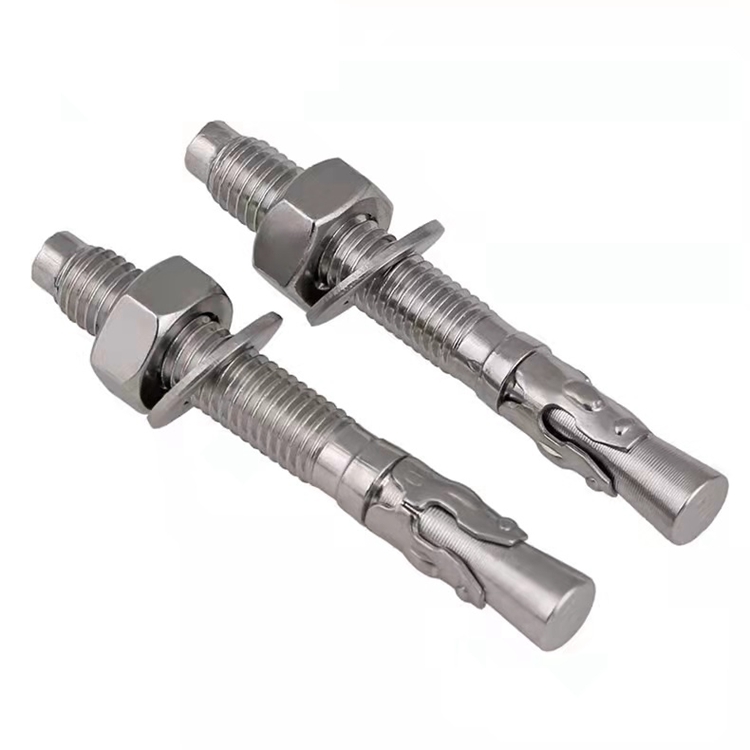best 10 32 t nuts
Nov . 17, 2024 03:09 Back to list
best 10 32 t nuts
The Best 2010-2032 T-Nuts A Comprehensive Guide
T-nuts, also known as T-nut fasteners or Tee nuts, have gained immense popularity in woodworking and metalworking applications from 2010 to 2032. These versatile fasteners, shaped like a 'T', are designed to easily accommodate threaded bolts or screws in a variety of materials, making them essential for numerous projects. This article explores the evolution, types, uses, and advantages of T-nuts over this time frame, providing a comprehensive guide for anyone looking to understand their significance.
Evolution of T-Nuts (2010-2032)
Since 2010, the manufacturing of T-nuts has evolved significantly. Advances in material science have led to the production of more robust and durable fasteners, enhancing performance in diverse applications. Historically, T-nuts were primarily made from steel, but advancements have paved the way for aluminum, plastic, and even brass variants. These developments have contributed to a broader range of applications, from furniture assembly to industrial machinery.
Modern T-nuts also exhibit superior resistance to corrosion, which is crucial for projects exposed to moisture and harsh conditions. This improvement in material quality has expanded the usability of T-nuts in outdoor applications, including garden furniture and structures exposed to the elements.
Types of T-Nuts
Since 2010, various types of T-nuts have emerged to cater to different needs. The most common types include
1. Standard T-Nuts These are the basic type and are suitable for most applications, often used in woodworking projects and furniture assembly.
2. Serrated T-Nuts Featuring teeth, these T-nuts provide additional grip and are ideal for applications where extra holding strength is required. They are commonly used in furniture pieces that undergo frequent adjustments.
3. Knurled T-Nuts These T-nuts have a knurled outer surface, allowing for a more secure fit when inserted into wooden materials. They are favored in high-stress applications due to their enhanced grip.
best 10 32 t nuts

4. Swage T-Nuts These specialized fasteners are designed to be installed using a pressing action, making them ideal for use in thinner materials where traditional installation methods might not be feasible.
5. Flanged T-Nuts Featuring a wider flange, these T-nuts distribute weight more evenly and prevent pull-throughs in softer materials. They are widely used in applications requiring high torque.
Applications of T-Nuts
T-nuts have found extensive application across various industries in the last decade. In woodworking, they are commonly used in assembling cabinets, workbenches, and bunk beds, allowing for easy disassembly and reassembly. The furniture industry benefits from the quick installation process facilitated by T-nuts, reducing labor costs and increasing efficiency.
In metalworking, T-nuts are employed in building custom fixtures and jigs, providing a secure means to anchor components together. Their versatility extends to the automotive and aerospace industries, where they are utilized in assembling parts where reliability and strength are paramount.
Advantages of Using T-Nuts
The advantages of using T-nuts are manifold. First and foremost, they provide a robust connection that can withstand considerable loads. This makes them particularly appealing to manufacturers and hobbyists alike. Additionally, the ease of installation—often requiring just a simple hammer tap or wrench—saves significant time on assembly.
Another key benefit is the ability to quickly change components without damaging the surrounding material. This feature is especially valuable in applications where adjustments are frequent. Furthermore, T-nuts can be used in combination with other fasteners to create multi-layered assemblies, increasing design flexibility.
Conclusion
The period from 2010 to 2032 has seen a remarkable evolution in the design, types, and applications of T-nuts. Their widespread use across various industries highlights their versatility and effectiveness as fastening solutions. As technology continues to advance, we can expect T-nuts to become even more refined, catering to the ever-changing demands of the construction and manufacturing sectors. Whether you're a seasoned professional or a DIY enthusiast, understanding T-nuts and their applications will undoubtedly enhance your projects and contribute to their success.
Latest news
-
Premium Phosphated Drywall Screws Supplier | Durable, Rust-Resistant
NewsAug.27,2025
-
Reliable Wire Bolts Suppliers | Quality Zinc Plated Fasteners
NewsAug.26,2025
-
Wire Bolts Suppliers: Durable & Reliable Fasteners for Every Project
NewsAug.25,2025
-
Premium Cabinet Bolts Supplier | Wholesale & Custom Solutions
NewsAug.24,2025
-
Reliable Axle Nuts Supplier | Quality & Precision Fasteners
NewsAug.23,2025
-
Durable Bolts for Lawn Mower Handle - Top Supplier & Manufacturer
NewsAug.22,2025
